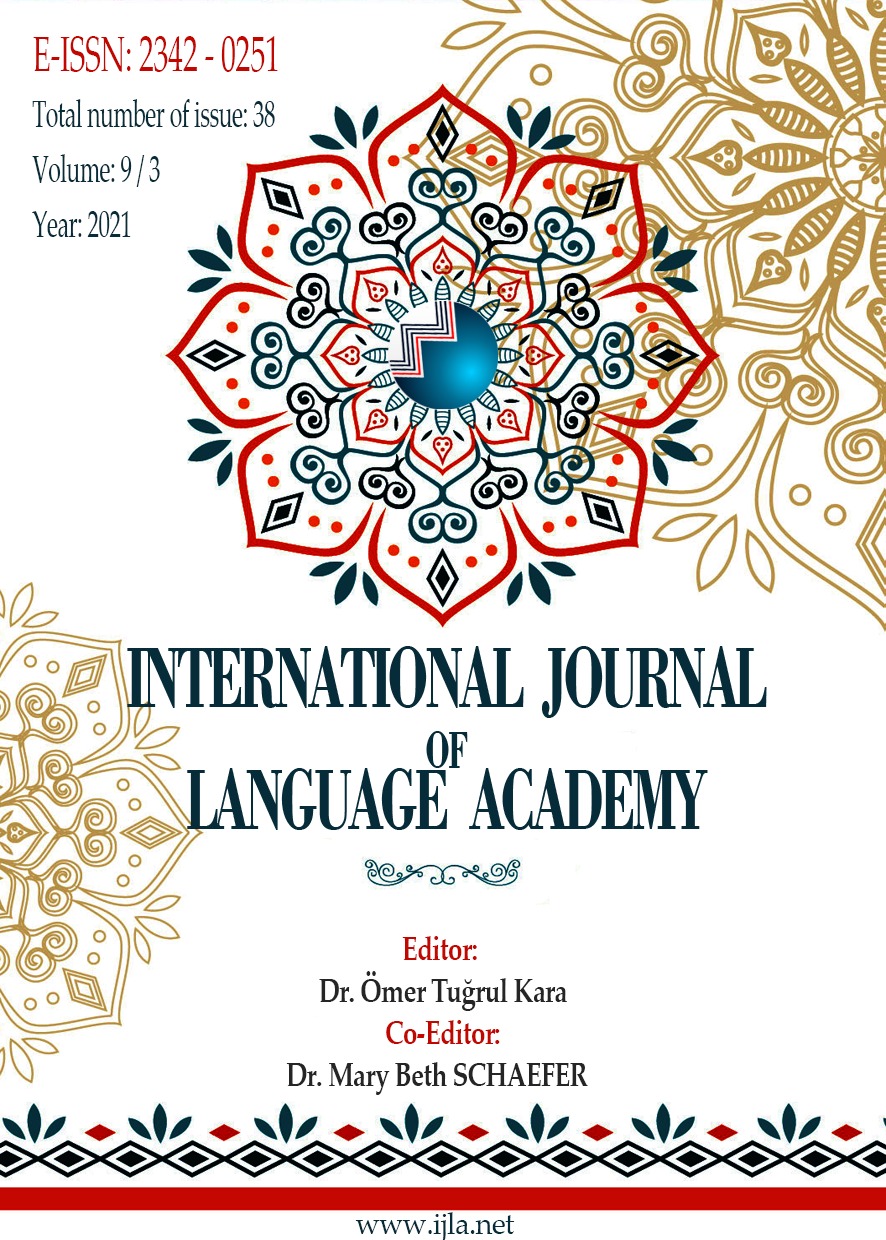Author :
Abstract
Keywords
Abstract
The aim of the study was to find out the effect of online vocabulary education on the vocabulary achievement levels of EFL students. It also aimed to reveal the perceptions of EFL students towards the use of online vocabulary education to improve their vocabulary retention. Another aim of the study was to find out the challenges faced by EFL students while receiving online vocabulary education. To this end, the study was conducted as a mix-method study that includes 38 EFL students who were chosen via the convenience sampling strategy. The data of the study were collected through pre-and post-achievement tests, a questionnaire and semi-structured interviews. While the data acquired via pre and post-tests and questionnaires were analyzed by using SPSS 25 Statistical Package, the data obtained through semi-structured interviews were examined by adopting a categorical-content analysis approach. The study results uncovered that providing online vocabulary education is a fertile strategy that can help students improve their vocabulary proficiency. It was also revealed that students managed to learn various words effectively during the online education process, and online vocabulary teaching increased their language learning motivation. The results of the study also showed that in spite of the pros of online vocabulary education, it creates some challenges for EFL students.
Keywords
- Agca, R. K., & Özdemir, S. (2013). Foreign language vocabulary learning with mobile technologies. Procedia-Social and Behavioral Sciences, 83, 781-785.
- Chinnery G.M. (2006) Emerging technologies: going to the MALL (Mobile Assisted Language Learning). Language Learning & Technology 10, 9–16.
- Dashtestani, R. (2013). EFL teachers' and students' perspectives on the use of electronic dictionaries for learning English. Call-Ej, 14(2), 51–65.
- Doughty, C., & Long, M. H. (2003). Optimal psycholinguistic environments for distance foreign language learning. Language Learning and Technology, 7(3), 50–80.
- Ekinci, E., & Ekinci, M. (2017). Perceptions of EFL Learners about using Mobile Applications for English Language Learning: A Case Study. International Journal of Language Academy, 5, 5.
- Ellis, R. (1994). The study of second language acquisition. OUP.
- Horst, M., Cobb, T., & Nicolae, I. (2005). Expanding academic vocabulary with an interactive online database. Language Learning & Technology, 9(2), 90-110.
- Johnson, A., & Heffernan, N. (2006). The Short Readings Project: A CALL reading activity utilizing vocabulary recycling. Computer-Assisted Language Learning, 19(1), 6377.
- Koren, S. (1999). Vocabulary instruction through hypertext: Are there advantages over conventional methods of teaching? TESL-EJ, 4(1), A-2, 1-18.
- Lan, Yu-Ju. (2013). "The effect of technology-supported co-sharing on L2 vocabulary strategy development." Educational Technology & Society, 16(4): 1–16.
- Levine, A., Ferenz, O., Reves, T. (2000). EFL academic reading and modern technology: How can we turn our students into independent critical readers? TESL-EJ, 4(4), 1-9.
- Ma, Q. (2017). Technologies for teaching and learning L2 vocabulary. The handbook of technology and second language teaching and learning, 45-61.
- Roschelle J., Sharples M. & Chan T.W. (2005) Introduction to the special issue on wireless and mobile technologies in education. Journal of Computer Assisted Learning 21, 159–161.
- Shudong, W., & Higgins, M. (2005). Limitations of mobile phone learning. In IEEE
- Tozcu, A., & Coady, J. (2004). Successful learning of frequent vocabulary through CALL also benefits reading comprehension and speed. Computer-Assisted Language Learning, 17(5), 473-495.
- White, C. (2003). Language learning in distance education. Cambridge: Cambridge University Press.
- Yip, F.W.M., & Kwan, A.C.M. (2006). Online vocabulary games as a tool for teaching and Learning English vocabulary.





